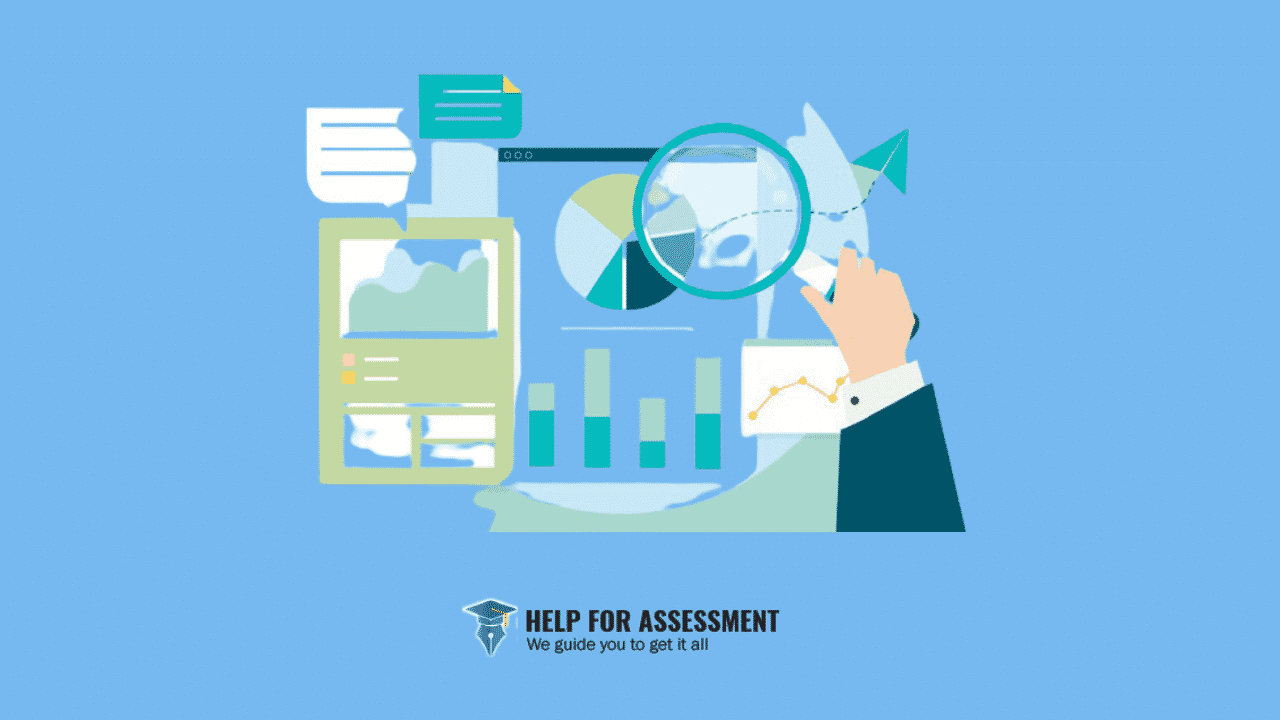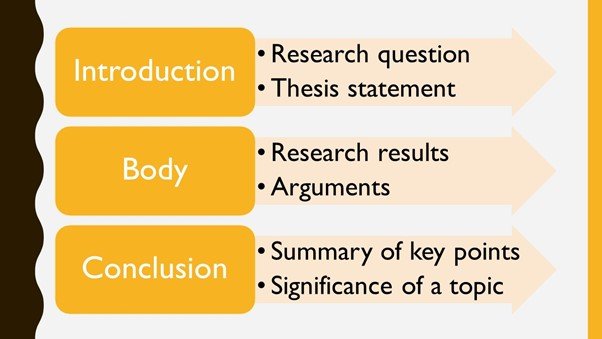It seems irrational that the same fear which keeps us away from the side of a cliff is the same that makes us freeze at the sight of a blank page.
In fact, a research paper ranks high among the greatest fears of students and accomplished academicians alike. But we're here to help you overcome it by teaching you how to write a research paper fast.
To begin with, fear is born of the unknown. If you don’t know what to write, what the readers (read “professor”) want, what is expected of you, or how to go about the entire process, fear will freeze you, literally.
Help for Assessment is here to break that awful state. This detailed guide will help you realize and understand how to write a perfect research paper and get you started with a sample outline. We’ll even give you some research paper topic examples for inspiration.
If, on the other hand, you feel that you just can’t deal with that kind of stress or pressure right now, don’t worry.
Help for Assessment also has a team of veritable research paper experts who will write it for you and ensure you get the grade you wish for. We will do all that at the best rates you can find, including up to a 50% discount for first-time orders.
What Makes a Great Research Paper?
The first unknown to debunk is what a research paper needs to be. A clear picture of what you’re working to achieve goes a long way towards removing fear.
In many cases, you will even need to write a research paper proposal first, also called a prospectus, and get it approved by your instructor before proceeding to work on the research paper.
There are certain qualities that every good research paper needs to be successful, which as you will soon discover, are the qualities of the research project itself.
- Clarity - the researcher should have a clear picture of the paper, its place within the wider context, and its structure even before starting. This same clarity should be reflected in the writing with a clear expression of ideas. In other words, no ambiguity or unnecessary complexity.
- Conciseness - if the research paper is to have the impact desired, it should be direct, straightforward, and to the point. Having lots of extraneous material will only dilute the content, so try to go exhaustive without getting off-topic. Every paragraph and sentence should have a measured contribution to the main argument.
- Structured - a research paper always follows a distinct organizational framework and logical flow of ideas. This structure varies depending on what kind of research paper you’re writing.
- Analytical and original - A research paper is NOT a review of existing literature. There should be a distinct and valuable contribution to the existing body of knowledge through thorough analysis, analytical thinking, and drawing coherent conclusions from the research done. In short, a research paper should be analytical and critical, not descriptive.
- Firmly founded on existing research - a research paper is sequential in nature, which means that it rests on and proceeds immediately out of the existing published knowledge of the topic. Every claim, every finding, and every conclusion must be firmly supported by credible data and evidence.
- Realistic - early on in the research paper writing process, you will discover how much of an investment the paper requires in terms of time and effort. It must be doable in the time frame and with the resources available, otherwise, it will be a waste of time. Decide early on if the paper is realistic, and make sure to have a working deadline.
- Relevant - the research paper must be relevant to your discipline and area of study. In addition to being an expression of critical thinking, it’s also a learning experience that develops the student’s specific knowledge greatly, a rewarding experience in itself.
With that in mind and the target in sight, we can now formulate a working structure for the research paper.
But first, you need to get ready. Probably the most important part of writing a research paper is preparing effectively.
How to Write a Research Paper Fast - Step by Step
1. Organize (Getting Ready)
It is said that victory loves preparation, and nothing is more true when you are undertaking such a massive project as a research paper. Organization spans from selecting the right topic, formulating a thesis statement, and creating an outline.
In many cases, especially for high school and junior years of undergraduate studies, the instructor provides the research paper topic for high school and saves you a lot of headaches.
However, sometimes that responsibility is left to the student. Here is how you can come up with a good topic for your research.
Before we go into that, remember that a good topic needs to be:
- Specific - the scope of your topic must be narrow and focused, else your research will have no direction. A general topic will quickly overwhelm, but if it is too specific, you might run out of research material.
- Feasible - the topic you choose to investigate should have enough research material available for you to use. Obscure topics or those that are too new may not provide enough depth of material for proper research.
- Clear - the topic should bear no ambiguity or undue complexity. It needs to be straightforward, direct, and understandable by someone at your level of education.
- Relevant - the research itself is meant to be a contribution to your field, so the topic needs to be relevant to your discipline.
- Interesting - We consider this quality to be one of the most important qualities because an interesting topic makes the whole process easier and more rewarding. Go for a topic you love, or that you have questions about, or that you have always wanted to explore.
Of course, your instructor will have to approve the topic you pick. It is also good to have a backup topic or two in case you hit a wall with the first. Following this process does help, though, when it comes to selecting a good topic.
- Brainstorm - take a moment to think about possible ideas you would like to explore. You can easily get these from popular media, current news, online, movies, books you have read, and even from your classwork. If this doesn’t work, pick your friend’s brains and hear what they suggest. Write all these down.
- Evaluate - Measure the topic against the qualities above and eliminate any that don't qualify. This process alone should eliminate 80% or more of these.
- Light research - do some general research on the few remaining ideas to discover what the available body of knowledge is. Determine their relevance to your field, see what position you can argue from, and finally pick the one you like most.
- Start research on the said topic. At this stage, you should know what kind of research paper you are going to write - analytical, argumentative, interactive, cause and effect, survey, interpretive, etc. You should also pick your position early on. As you read and research, have a notebook ready to write down any quotes, arguments, major ideas, data gaps, and anything else that will help you to write the paper. Remember to maintain a proper record of all the sources you use for later reference and for your bibliography.
- Formulate your thesis statement and title - to start with, frame your topic in the form of a question that you will be answering. Then come up with a thesis statement for the paper, which you can change as the research paper develops.
Research Paper Outline
You can
read this article to learn more about research paper outline.
In some types of research paper, the methodology section is replaced by a "Review of Literature", where you offer a brief commentary on each source you use for the paper.
Also note that a research paper is usually about 3000 words long, although your instructor will give you directions regarding the same.
The introduction should be no more than 300 words, while the conclusion should not exceed 500. In most cases, the bibliography, table of contents, and abstract don't count toward the total word count.
Some other expert tips for creating a top-quality research paper include:
- Revise, revise - Make sure you revise your draft at least twice and correct any grammatical, logic flow, and organizational issues that arise. Any sentence that sounds vague or ambiguous to you will be unintelligible to the reader, so correct it. Remove any repetitive or redundant words, and so on. Refine your paper until it sounds just perfect. If you hate revising finished work like many students do, revise each section when finished.
- Have a deadline - brick walling is common in the writing process. Procrastination and outright laziness are also big problems. Make sure to set yourself solid deadlines to help get you moving. Also, try to work with as little distraction as possible.
- Read good research papers from others - Learn from the best and borrow tips and tricks from renowned research papers from top writers.
- Practice, practice! - Even renowned writers take time and lots of practice to develop the skill; it seldom comes naturally. No matter at what level of the education system you are, the truth is that the ability to write good research papers is a critical skill you will need later in life. Keep sharpening it.
Sample Research Paper Topic Ideas
Now that you have the cheat sheet to A-level research papers, all you need to do is start writing.
Another wise guy once said that the secret to getting ahead is getting started, and all you need now is some inspiration. As promised, here are twenty sample research paper ideas - you will have to develop your own thesis statements.
High School Research Paper Topics
- Privacy during the digital age - you can explore the role of the government, papers, or even tech companies such as Facebook.
- Healthcare policy during President Obama's tenure in the White House.
- The increased divorce rates in the past few decades.
- Pornography prevalence because of its availability online.
Should parents impress their own moral/religious/political values on their children? To what extent?
- Competition in school: is it healthy?
- Modern farming: the effects of pesticides, GMO products, and other modern practices on consumer health, the environment, or national/global food security.
- Climate change in a specific ecosystem/state/country.
- Military spend: why does the world spend so much on defense budgets instead of using it on more humanitarian issues?
- The impact of the Coronavirus on tourism-dependent countries.
College Level/General Research Paper Topics
- Pets and therapy - how pets are helping the disabled/seniors/those with mental health issues.
- Popular media and morality: how general entertainment is responsible for shaping societal moral values.
- College athletes: should they be paid?
- Green energy - to what extent has it helped reduce CO2 emissions and reduced reliance on non-renewable energy?
- Battered-woman-syndrome - why some women seem unable to leave their partners despite being continuously abused and physically harmed.
- Culture: to what extent has the Japanese culture of “the working/salaried man” affected mental wellness?
- Depression - the publicizing of depression has not helped make it better. Discuss.
- Freedom: Given that communist countries are, theoretically, having better control of the Coronavirus scourge, is there a limit to which personal freedom should be allowed?
- Education system - How does the US school system compare with, say, the Japanese or Korean system?
- Bioterrorism: The use of biological or neurological warfare against humanity.
Research Paper Writing Help
How would you like to get your entire research paper written, proofread, and vetted by top research professors?
You would get to spend your time on truly living your life to the full, with no worry or stress.
We offer you our world-class research paper writing service with top academicians in the US, Australia, Canada, and Europe.
As our valued customer, you get this service at very affordable rates, and we will even give you up to 25% off on your first order. Simply visit our service page to make your order and explore the amazing deals we have on offer.
On top of that, we guarantee timely delivery and 100% confidentiality, no matter where you are. Let Help for Assignments take care of your research paper for you the expert way.







